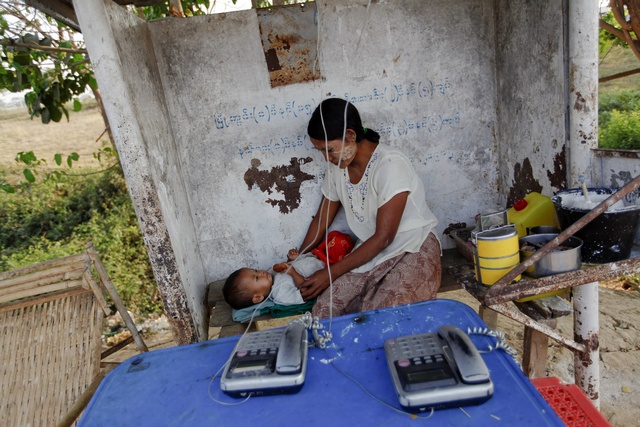The word ‘freedom’ seems no longer relevant for the hundreds of remaining political prisoners in Burma. They continue to live with hope that one day lasting real change will be instituted in the country as they spend their life behind bars.
However, their own personal freedom and liberty for all of Burma seems to be fading as the country rolls out nominal reforms. They are tired of hearing the loud echoes of ‘reforms’ and ‘changes’ that the ruling quasi-military dictatorship has embarked upon while they struggle to survive in their tiny cells.
Following Aung San Suu Kyi and her National League for Democracy’s poll victories, many western nations have begun the process of dropping sanctions against the country. The long time critics of the Burmese regime, the US and the EU, are rushing to reward the ‘reformist’ government, while pledging to push the government to free the country’s remaining political prisoners.
But how will they go about removing their sanctions that were more symbolic and largely ineffective in forcing the country’s former junta to reform? Since the western democracies introduced sanctions in 1990s, Burma’s neighbours have been quick to invest in their neighbour’s economic landscape.
During the years of military rule, the generals and their associates became millionaires. Regional countries, including China, India, Japan and ASEAN members, have reaped profits from their dealings with Burma. But the Burmese population have not been so lucky. They’ve suffered from poverty, fear and torture. Whether western sanctions hurt the regime or the country’s population more remains one of the most debatable issues concerning Burmese policy. Did sanctions actually push the generals to transition into a civilian government or did the rulers themselves institute such changes?
The people in Burma have been penalised for exercising fundamental rights for the past half of a century. The recent relaxation of select censorship laws and the release of leading activists and politicians are aimed at provoking western nations to terminate sanctions. It is too difficult and early to prove that Burmese citizen have begun to enjoy basic rights and freedoms in their everyday lives. While freedom of expression, assembly and many other civil and political rights exist on the paper, it’s hard to say how that’s filtered down and been realistically flushed out. Has the time come when people will no longer have to live in fear?
The NLD won the elections again this year, but they will be forced to work in a parliament that has 25 percent of its seats in the hands of the military. Unless the 2008 constitution is amended prior to 2015 elections, Aung San Suu Kyi will not legally qualify to sit as president and the army will maintain its dominant role in the country’s political scene.
Now with members in parliament, the NLD announced that they would push for the restoration of the rule of law and establishing internal peace, while seeking to amend the constitution. However, many question whether the NLD will be able to make a difference in legislative affairs. As long as the military appointees are united against the NLD’s reform proposals, much needed change will not materialise.
[pullquote] Has the time come when people will no longer have to live in fear? [/pullquote]
Only a change in the mind of the military will help the country transition into a genuine democracy. So far, the military has not signalled that they’re ready to support the pro-democracy opposition and allow for constitutional changes that could kick them out of parliament.
Still, the nominally civilian government has been desperate for legitimacy. They no longer want to be a pariah and blacklisted by the western world. The government wants to be better off and receive more investments from the west – particularly in sectors such as oil and gas.
Lifting too many sanctions too early would leave western countries will little leverage to continue to push the Burmese government to make further concessions and release the country’s remaining political prisoners. Questioning whether sanctions against Burma worked in the past is not of the upmost importance. However, sanctions seem to be able to wield more power with the new ‘reformist’ government that is desperately trying to rebrand its image.
The government still needs to install further reforms to earn the complete termination of sanctions. The country’s remaining political prisoners must be released, and a web of legal statutes must not tie down former political prisoners once they’ve exited their cells. As long as the regime keeps the population from enjoying their rights and freedoms, the sanctions against the ruling authorities should not be terminated.



